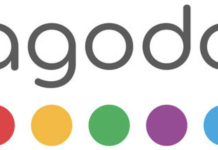BANGKOK, 11 November 2025: Artificial intelligence has quietly crept into our industry. One moment, we were juggling booking forms and rooming lists, and the next moment AI arrived like a bright young trainee who learns in seconds, never blinks, and never asks for a coffee break.
Smart, yes. Magical, sometimes. Ready to run the show? Not quite.

With over four decades in hospitality, from the early 1980s to the present, I have witnessed the arrival of new technologies with great fanfare. Some changed everything. Some disappeared faster than a guest towel left unattended. AI is different because it impacts nearly every aspect of hospitality, from pricing and forecasting to kitchens, housekeeping, and the front-of-house.
But hospitality is a people business. Always has been. Always will be.
What AI does well
AI deserves some applause. When used sensibly, it can:
• Tidy up repetitive work so staff can focus on guests;
• Forecast demand more accurately than guesswork;
• offer instant translations that help calm nerves and build rapport;
• Suggest prices, menus, and marketing ideas with real speed;
• Keep maintenance on schedule and prevent surprises when the hotel is full.
These tools can make life easier for everyone.
Where AI still trips over its own feet
Now for the honest bit. AI is clever, but not infallible. In hospitality, accuracy matters. A robot server delivering food to the wrong table is amusing once, but less funny on a busy evening. Automated housekeeping systems can still misread priorities, especially when the hotel is full. Predictive tools sometimes predict the wrong thing.
And as for driverless taxis, I admire the technology immensely, but I am not entirely convinced I am ready to jump into one just yet. Perhaps one day. Not today.
Guests want reliability. They want trust. They want reassurance. Until AI can match that level of confidence, humans will remain essential.
Why human expertise still beats any machine
There is an old saying in travel, “If you book without a travel agent, you are on your own.” Anyone who has travelled knows how true that can be. A travel professional carries real-world knowledge that AI cannot mimic. They know which hotels look perfect online, but are actually located next to a nightclub. They know which rooms catch the sunset, which ones face the car park, and which properties may look charming but require strong legs and a sense of adventure.
AI sees data. Humans know the story. Excellent travel advice comes from judgment, experience, and a deep instinct for what guests truly want. And we are not trying to teach grandmother to suck eggs here.
Most readers have travelled widely and know full well that trips can go beautifully or hilariously off-script. The point is simple: AI is helpful, but people remain irreplaceable.
In a world full of clever machines, honest human advice is still worth its weight in gold.
Three Thai industries most affected by AI
Although hospitality is our focus, three sectors in Thailand are feeling the strongest AI pressure:
1. Manufacturing and automotive
Smart factories, robotics, predictive systems, and machine vision are reshaping production.
2. Retail and services
AI now guides stock, pricing, customer behaviour, and personalised marketing.
3. Hospitality and tourism
From booking systems to chatbots to guest messaging, AI is everywhere. But the Thai welcome, warm and human, remains the anchor.
A thoughtful view from a respected Thai colleague
Before we look ahead, it is worth noting a broader concern that touches every industry. My esteemed media friend and respected Thai colleague, Thana Pongsaskulchoti, recently shared his concerns with me about how AI is beginning to impact the economy. His words were honest and essential.
“Domestic purchasing power in Thailand has significantly decreased due to job market contractions. The advent of AI has led many companies to cut costs by halting new hires and gradually laying off existing employees. When fewer Thais are employed, the overall purchasing power in the market declines. This creates a dangerous cycle; companies experience reduced revenue, which, in turn, pressures them to reduce their workforce further. ”
His perspective is a valuable reminder that AI does not live in isolation. It operates within a real economy, with real households behind it, and changes in one sector can quickly ripple through others.
For hospitality, this means introducing new technology thoughtfully and with consideration. AI can support us, but it should never overshadow the people who give Thailand its warmth and welcome.
My view after more than four decades in hospitality
Technology will keep advancing. Tools will keep improving. AI will become smoother, faster, and more reliable. Yet the heart of hospitality has never been in the machines. It has always been in the smiles, the warmth, the genuine care, and the thousand small interactions that make a guest feel safe and welcome.
AI will help us, but it will not replace us. The future belongs to teams who use technology to lift service, not flatten it. Combine Thai warmth with clever tools, and we can create experiences that are more personal, more efficient, and more joyful than ever.
That is the future I believe in.
About the Author
Andrew J. Wood is a British-born travel writer and former hotelier who has lived in Thailand since 1991. Beginning his full-time hospitality career in the early 1980s, he brings more than four decades of experience to the industry.
A former General Manager of several leading hotels and a former Director of Skål International, also a Past President of Skål International Bangkok twice, Skål Thailand, and Skål Asia, he writes for numerous travel and hospitality publications worldwide, sharing insights on tourism trends across Asia and remains a passionate advocate for Thailand’s touism industry.






